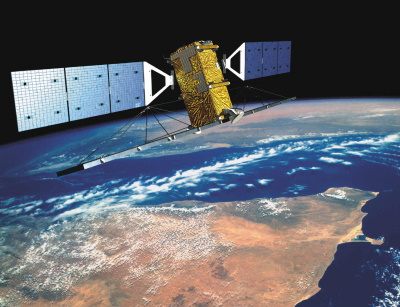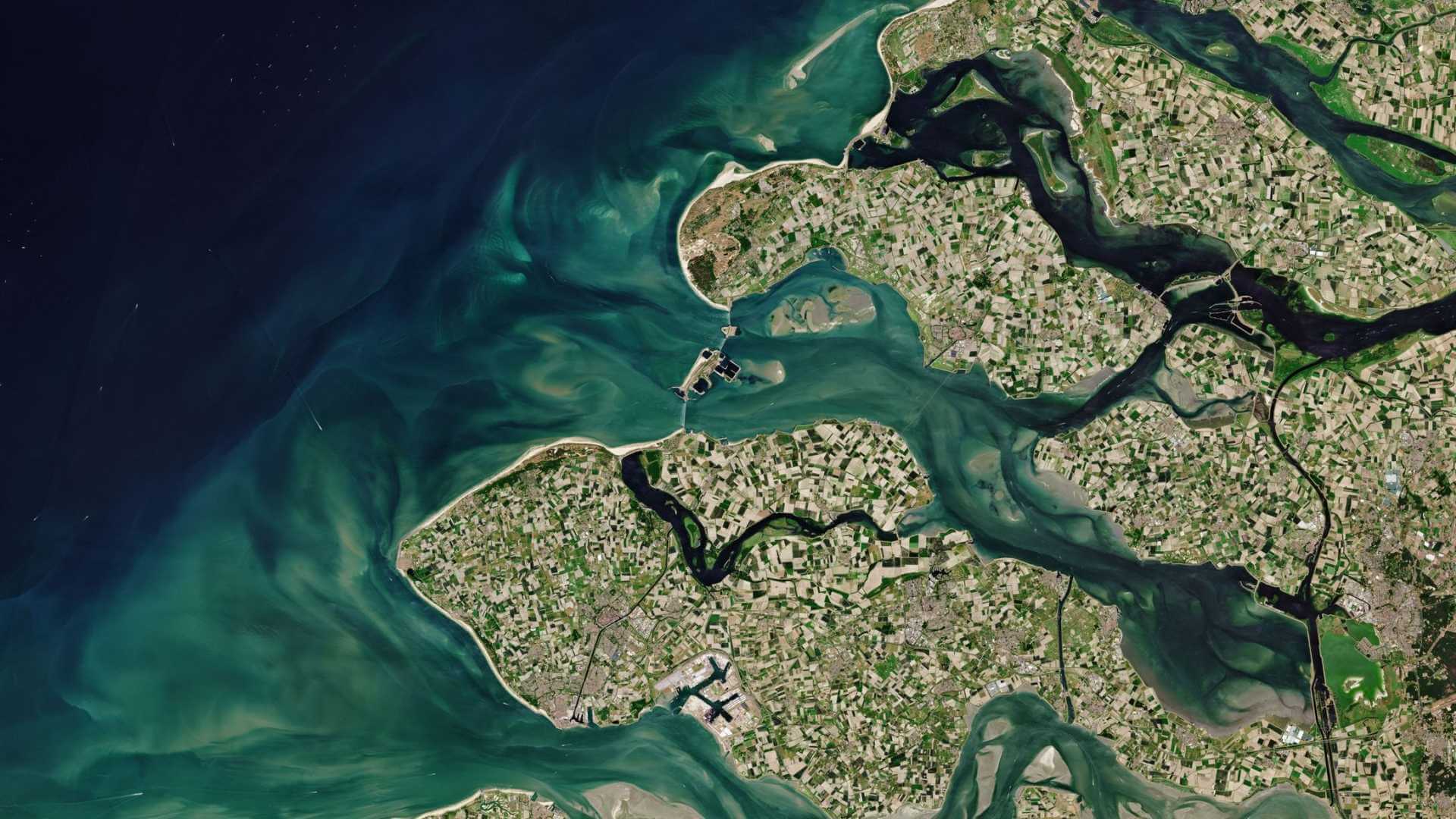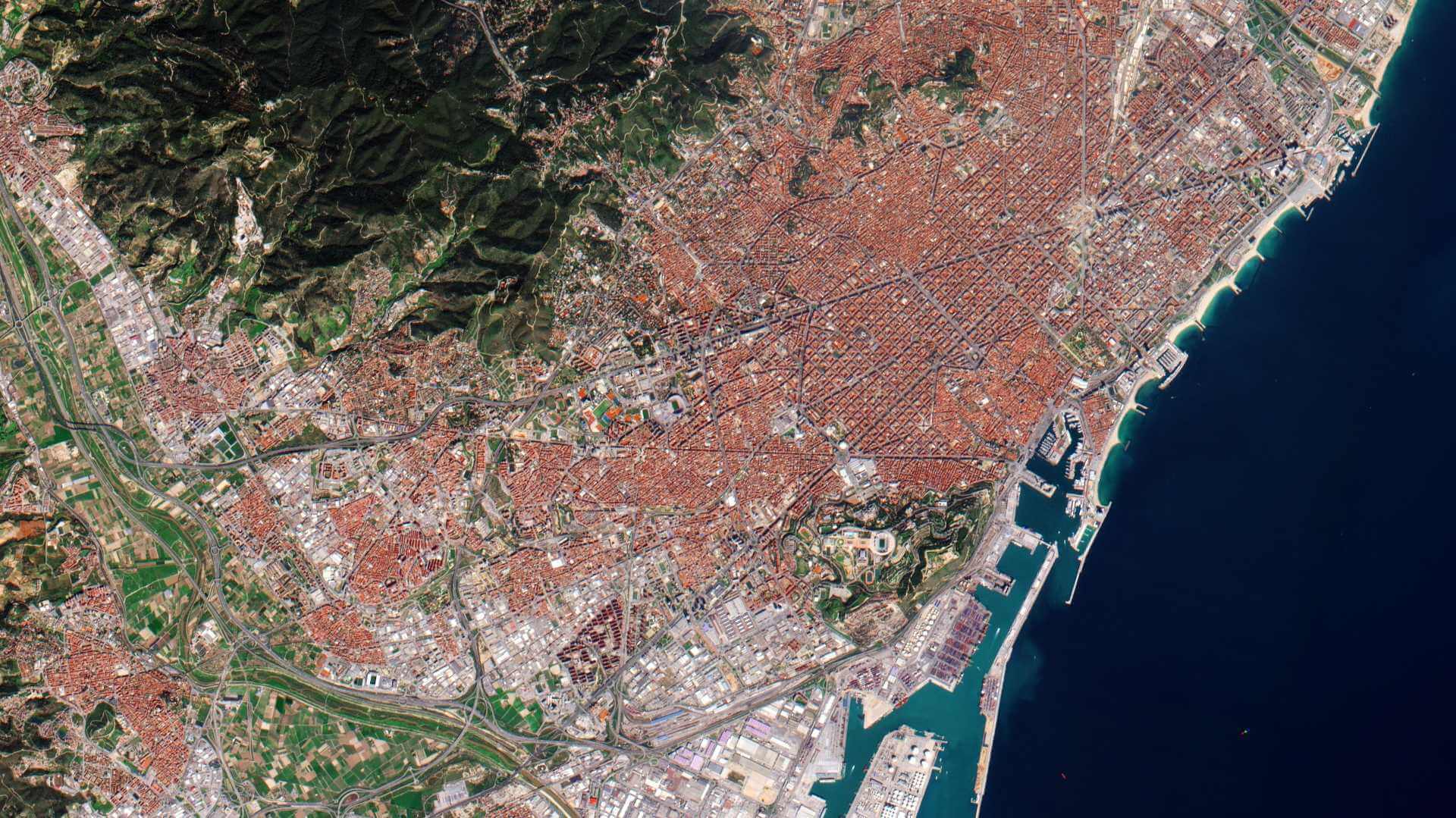Featured
About RADARSAT

The RADARSAT programme consists of a pair of remote sensing satellites from the Canadian Space Agency (CSA):
RADARSAT-1 was an Earth-imaging radar satellite which CSA launched on 04 November 1995 and was decomissioned on 29 March 2013.
RADARSAT-2 is an Earth-imaging radar satellite which CSA and MDA (MacDonald Dettwiler Associates Ltd. of Richmond, BC) launched on 14 December 2007 and remains operational.
| Orbit Inclination | 98.6 degrees |
| Orbit Altitude | RADARSAT-1: 793-821 km RADARSAT-2: 798 km |
| Orbit Duration | 100.7 min |
| Orbit Type | Sun-synchronous (14 orbits per day) |
| Descending Node | 6 hours |
| Ascending Node | 18 hours |
| Repeat Cycle | 24 days |
RADARSAT Objectives
The aim of the RADARSAT missions is provide useful information to both commercial and scientific users in such fields as disaster management, interferometry, agriculture, cartography, hydrology, forestry, oceanography, ice studies and coastal monitoring.
RADARSAT Instruments
A Synthetic Aperture Radar (SAR) sensor is the primary payload of RADARSAT-1 and 2. The SAR can image Earth at a single microwave frequency of 5.3 GHz, in the C band (wavelength of 5.6 cm). This enables images of Earth to be acquired day or night, in any atmospheric condition, such as cloud cover, rain, snow, dust or haze.
| Polarisation | HH; HV; VH; VV; HH+HV; VV+VH; HH+VV+HV+VH |
| Spatial resolution of data | 1 - 100 metres |
| Swath Widths | 18 - 500 km |
| Imaging Frequency | RADARSAT-1: C-band at 5.3 GHz RADARSAT-2: C-band at 5.405 GHz |
RADARSAT Data
DATA COLLECTIONS
ESA, in collaboration with MDA, is offering free access to RADARSAT-1 and RADARSAT-2 data for research and development, both archived and new acquisitions for the following modes:
- ScanSAR Wide and Narrow (Single or Dual Pol)
- Wide (Single or Dual Pol)
- Fine (Single or Dual Pol)
- Standard (Single or Dual Pol)
- Extended High and Low (Single Pol)
ESA will support as many high-quality and innovative projects as possible within the quota limit available therefore only a limited amount of products can be made available to each project.
Learn more about the RADARSAT products in the following collection descriptions:
ESA also offers access through the Online Dissemination server to the following data collections for registered users:
DATA TOOLS
A number of tools are available for visualising, processing and analysing RADARSAT data.
PolSARpro
PolSARpro (Polarimetric SAR data Processing and Education) supports the scientific exploitation of polarimetric SAR data and is a tool for high-level education in radar polarimetry.


